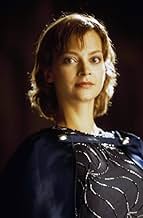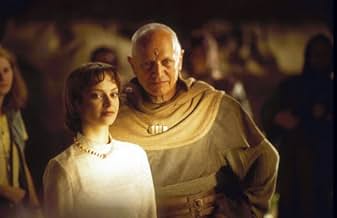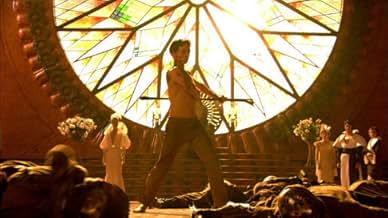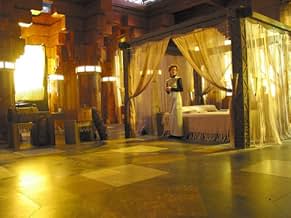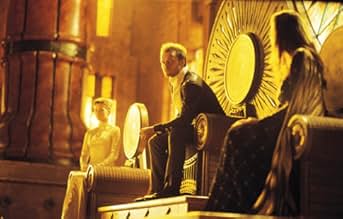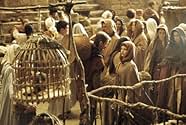The twins of Paul "Muad'dib" Atreides become embroiled in the political landscape of Arrakis ("Dune") and the rest of the universe.The twins of Paul "Muad'dib" Atreides become embroiled in the political landscape of Arrakis ("Dune") and the rest of the universe.The twins of Paul "Muad'dib" Atreides become embroiled in the political landscape of Arrakis ("Dune") and the rest of the universe.
- Won 1 Primetime Emmy
- 1 win & 8 nominations total
Browse episodes
Storyline
Did you know
- TriviaIn the novel, Leto and Ghanima are 9. For the miniseries, they appear to be nearly twice that age, so they could be played by adults.
- GoofsIt is made clear in the original miniseries (as it is in the novels) that Princess Irulan (played by Julie Cox) is Emperor Shadam's eldest daughter. However, her sister Princess Wensicia (portrayed here by Susan Sarandon) is clearly much older than she is. Susan Sarandon is actually 26 years older than Julie Cox.
- ConnectionsFeatured in Making Dune's Children: VFX Revealed (2003)
Featured review
Satisfying, well-written and superbly acted sequel to the Sci-Fi Channel's DUNE mini-series - which was itself vastly superior to the rampant-phallic-symbolism-held-together-by-stamp-hinges-and-cobwebs David Lynch film version. A science fiction hybrid of sword-wielding Old Testament prophets, LAWRENCE OF ARABIA, Toho giant-monsters-on-the-rampage flicks and the precepts of the 1970s ecological movement, CHILDREN OF DUNE is a storytelling and visual delight. F/X maestro Ernest Farino, who won the Emmy for his sterling work on the first DUNE mini-series, will likely make a repeat stroll to the podium when next year's visual effects award is handed out. He has created worlds and civilisations and creatures that are at once alien and familiar, wildly imaginative yet rooted in reality. Barring a ticket on the next space shuttle flight, this is the closest you will ever get to other worlds: Farino's effects are genuinely that good. In a production where all of the cast and crew clearly went beyond what their paycheques required of them, Farino's contributions are particularly satisfying. All in all, a magnificent undertaking; this is what that irritating salesman guest in FAWLTY TOWERS meant when he was talking about "televisual feasts."
Details
- Release date
- Countries of origin
- Official site
- Languages
- Also known as
- Frank Herbert's Children of Dune
- Filming locations
- Production companies
- See more company credits at IMDbPro
- Runtime1 hour 29 minutes
- Color
- Sound mix
- Aspect ratio
- 1.78 : 1
Contribute to this page
Suggest an edit or add missing content





